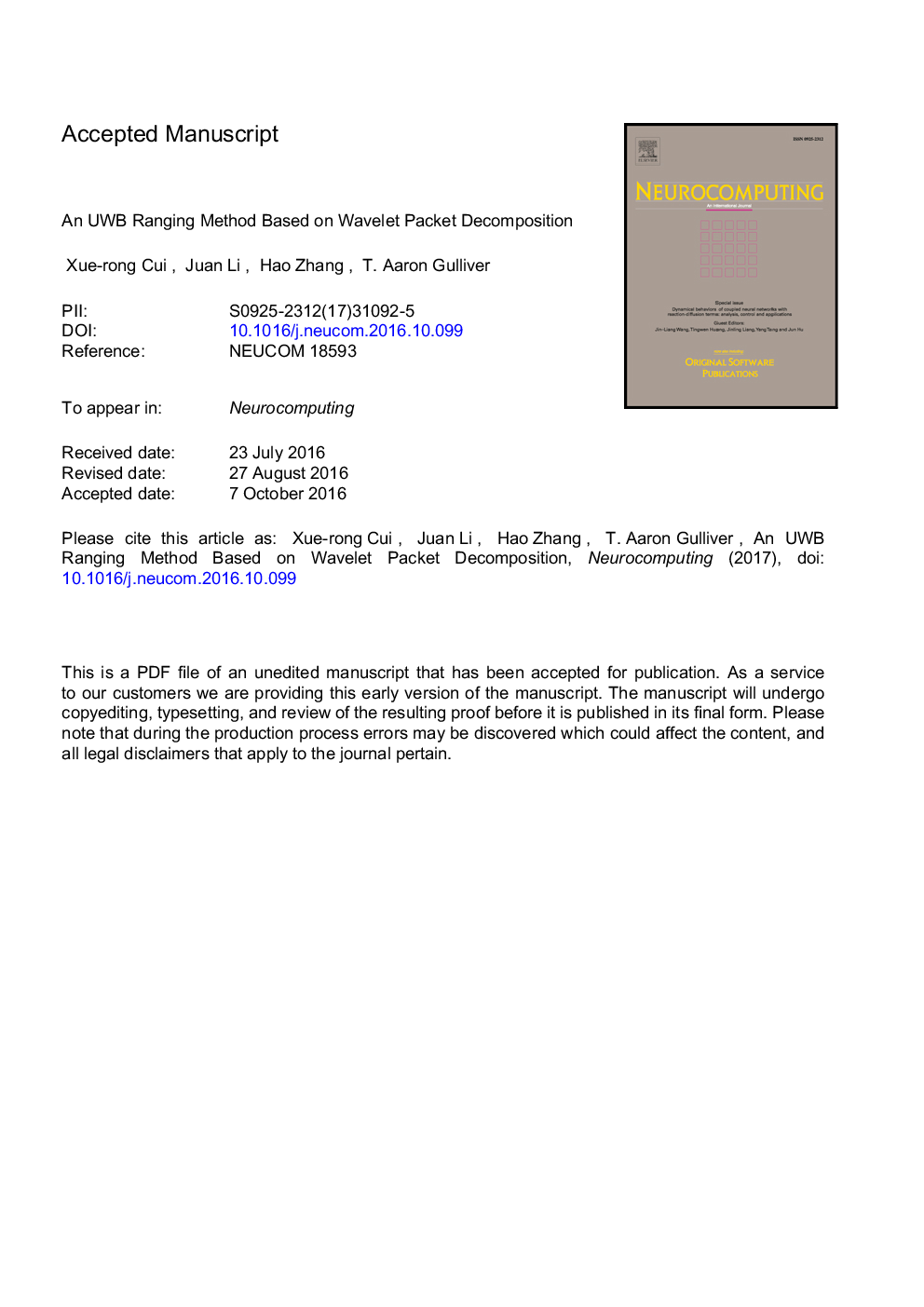| Article ID | Journal | Published Year | Pages | File Type |
|---|---|---|---|---|
| 4946839 | Neurocomputing | 2017 | 13 Pages |
Abstract
In wireless sensor networks (WSNs), precise ranging or positioning using Ultra-Wideband (UWB) signal attracts a wide research interest. The advantages of non-coherent energy detection (ED) are low sampling rate and low complexity, but the traditional energy detection schemes only analyze UWB signal in time domain, so the ranging or positioning error is large. In this paper, a novel ranging method is proposed which analyzes UWB signal in joint time-frequency domain. In this method, wavelet packet decomposition (WPD) is used to get the energy distributions in different sub-bands, and then back propagation artificial neural network (BP-ANN) is utilized to establish the mapping relationship between energy distributions and transmission ranges. The simulation results show that the ranging error of the trained BP-ANN in this method is significantly less than the traditional ED methods.
Keywords
Related Topics
Physical Sciences and Engineering
Computer Science
Artificial Intelligence
Authors
Li Juan, Cui Xue-rong, Zhang Hao, T. Aaron Gulliver,
